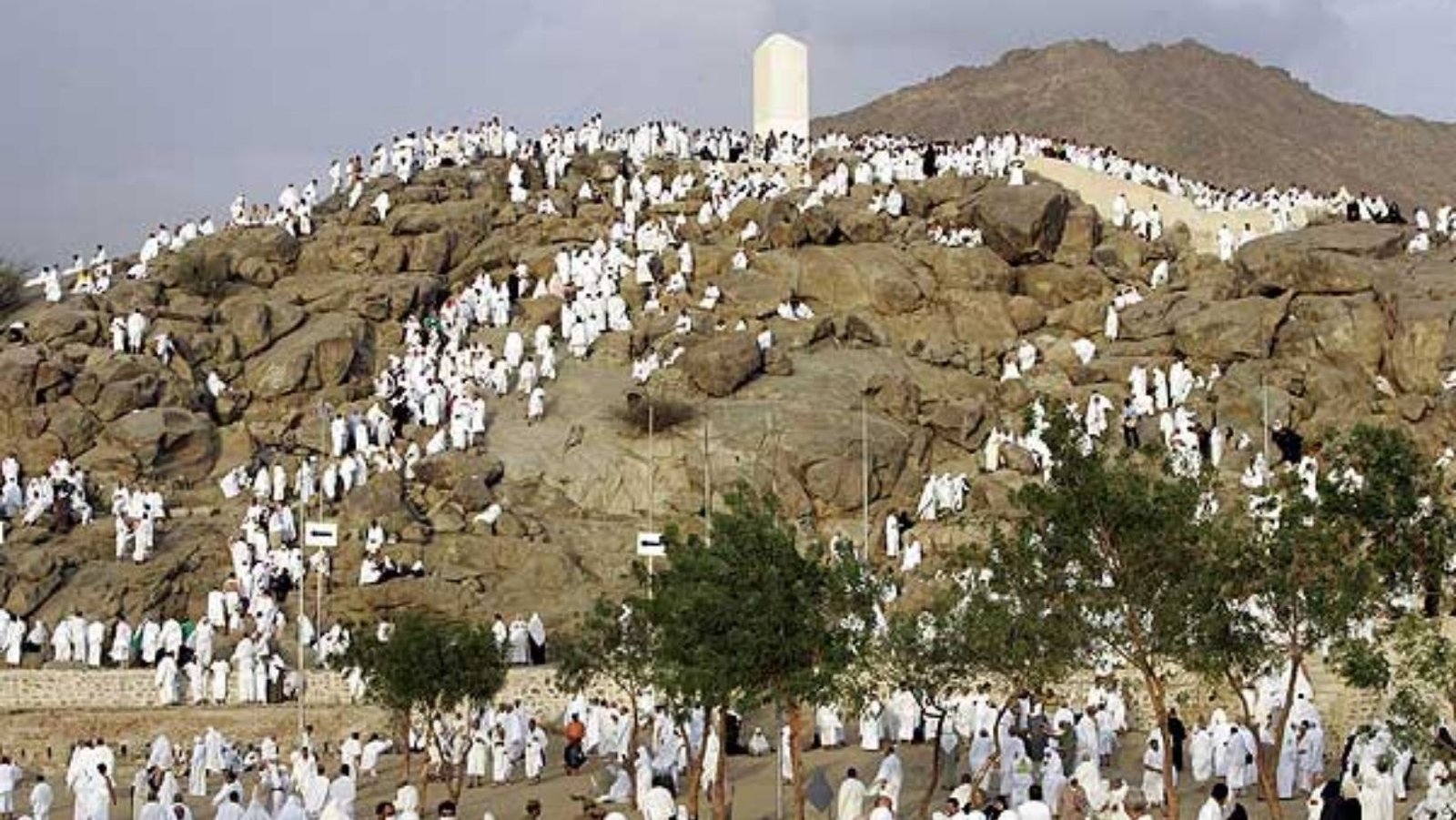Pilgrims swarm Mount Arafat in the largest post-restriction Hajj


MOUNT ARAFAT: Thousands of Muslim pilgrims prayed on Saudi Arabia"s Mount Arafat on Friday, the culmination of the largest hajj pilgrimage since the pandemic forced drastic reductions in numbers two years in a row.
On the rocky rise where the Prophet Mohammed (PBUH) is said to have given his final sermon, groups of worshippers recited verses from the Quran, many holding umbrellas against the scorching sun.
Prayers on Mount Arafat, also recognised as the "Mount of Mercy," are the highlight of the pilgrimage, which was limited to one million people this year, including 850,000 from outside the country, after Covid drastically reduced numbers in 2020 and 2021.
Pilgrims, many dressed in simple white robes and reciting "Oh God, here I am," walked or took buses from nearby tents where they had spent the night to Mount Arafat.
They will travel to Muzdalifah after sunset and sleep on the floor before performing the ceremonial "stoning of the devil" ritual on Saturday.
"Like everyone else, I am overjoyed to be here. This is the largest hajj in the coronavirus era, but it is not yet large enough "Saad Farhat Khalil, 49, an Egyptian pilgrim, told AFP.
"There are one million people here today, though if the Saudis had allowed more, ten million people would have come," he added.
As helicopters circled overhead and volunteers handed out bottles of water and gathered trash in green plastic bags, the entry roads were packed with worshippers.
"Let us keep the purest of all lands clean," a sign on a large garbage can read.
The hajj, one of the world"s biggest annual religious gatherings, is one of Islam"s five pillars and must be completed by all Muslims with the means at least once in a lifetime.
Even in ideal conditions, the pilgrimage can be physically demanding, but this year"s pilgrims have confronted an additional challenge: scorching sun and temperatures reaching 42 degrees Celsius (108 degrees Fahrenheit).
Once the rites begin, Islam forbids men from wearing hats, but many have been seen sheltering themselves with umbrellas, prayer mats, and, in one case, a small bucket filled with water.
Women, on the other hand, are supposed to cover their heads with scarves. A truck will also be used to distribute umbrellas, water bottles, and small fans.
On Saturday, Muslim pilgrims will participate in the "stoning," the final major ritual of the hajj that has previously resulted in deadly stampedes as hundreds of thousands of people congregate in a small space.
Following the stoning ritual, pilgrims return to Mecca"s Grand Mosque to complete a final "tawaf," or orbiting of the Kaaba, the cubic framework draped in a gold-embroidered black cloth that serves as Islam"s focal point.
The end of hajj is marked by Eid al-Adha, the sacrifice feast that begins on Saturday.